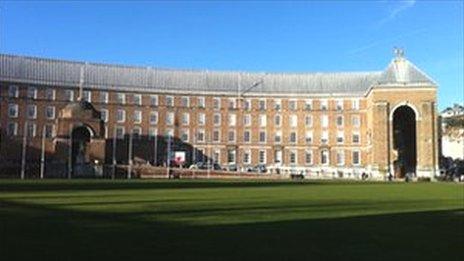Bristol strip club ban considered by council
- Published
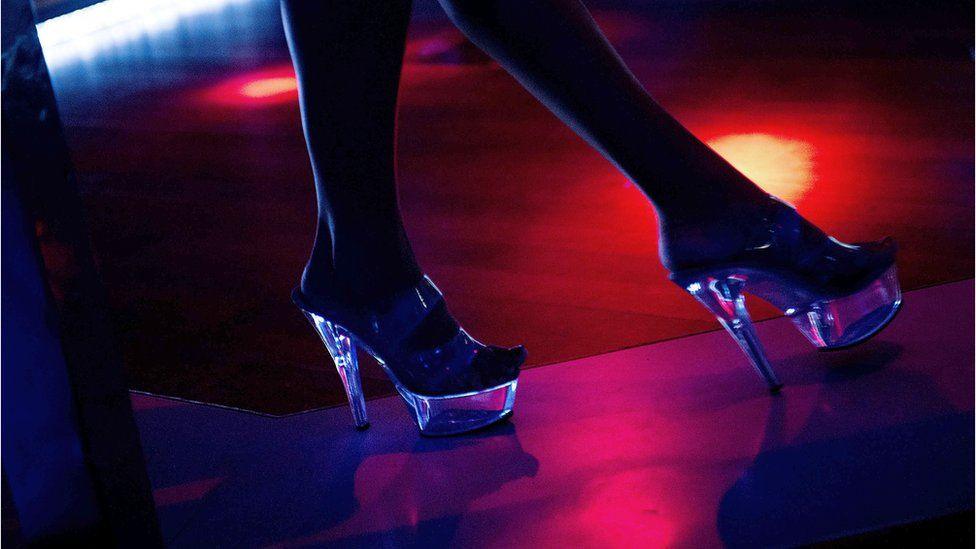
A consultation about sexual entertainment venues is likely to follow Bristol City Council's licensing committee meeting on 8 March
Strip clubs could be banned in Bristol under plans being considered by the city council.
Members of the licensing committee will consider the plans at a meeting on 8 March, with a 12 week consultation period set to follow.
There are two sexual entertainment venues (SEVs), Urban Tiger and Central Chambers, in the city centre.
Strip and pole-dancing clubs are legal and it is up to individual councils whether to grant licences.
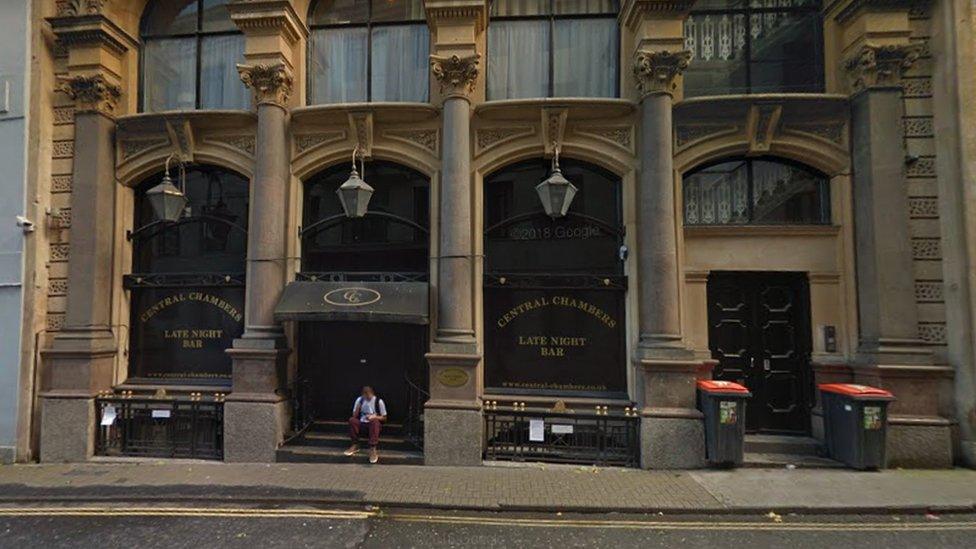
Central Chambers is one of two sexual entertainment venues licensed by the city council
Women's safety
Surveys carried out in previous consultations showed the majority of respondents were happy for SEVs to operate in Bristol, provided they were away from areas such as schools and places of worship.
At the two clubs' annual licence renewal hearings in 2019, pole-dancers said they were feminists and had a right to choose how they earned a living.
But their licence renewal was opposed by prominent figures including Bristol mayor Marvin Rees and Avon & Somerset police and crime commissioner Sue Mountstevens, according to the Local Democracy Reporting Service (LDRS).
A report to committee members said some groups believed that permitting SEVs "undermined the council's commitment to ensuring the safety of women in public spaces".
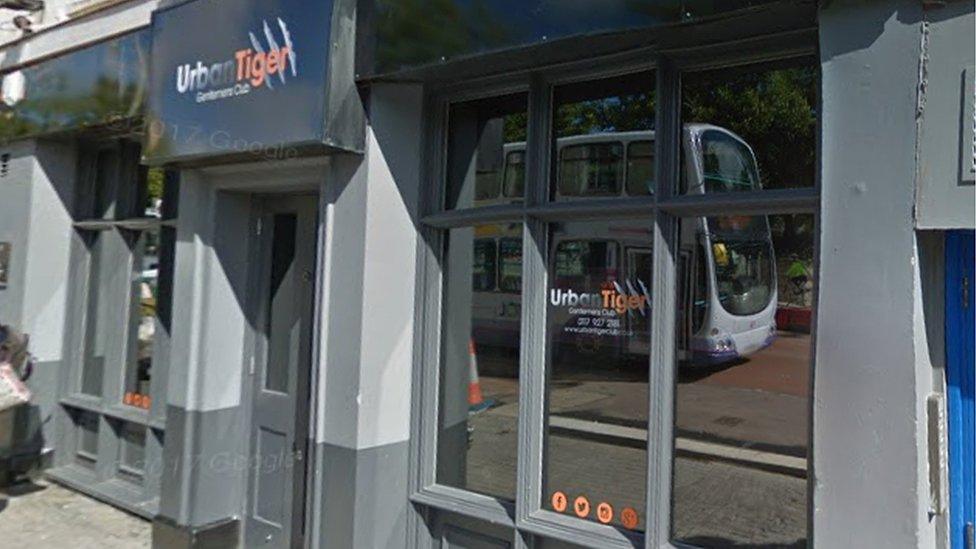
Urban Tiger could be forced to close or change its business if the plans are approved by councillors
It stated: "Other research has concluded that lap-dancing clubs normalise the sexual objectification of women, have a negative impact on women's safety in the local vicinity and may attract and generate prostitution."
The report also included a summary of the findings from a Leeds University study in 2015 suggesting that one in four SEV performers had a degree and there was no evidence of forced labour, trafficking of women or connections to organised prostitution.
There was no local evidence of a rise in crime in the vicinity of Bristol's SEVs, and banning the clubs was likely to have a negative impact on the livelihood of predominantly female employees, the report found.

Follow BBC West on Facebook, external, Twitter, external and Instagram, external. Send your story ideas to: bristol@bbc.co.uk , external
Related topics
- Published6 October 2020
- Published20 July 2018
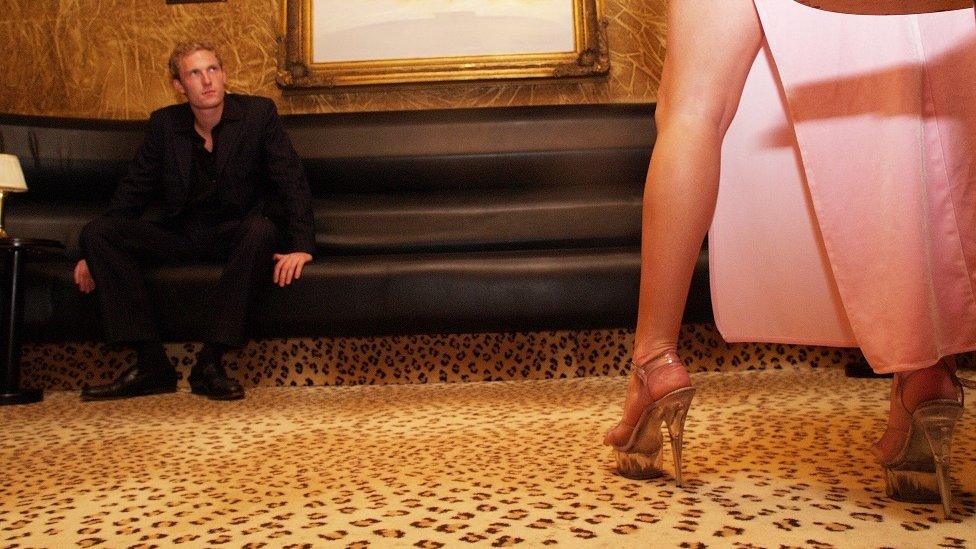
- Published29 January 2020
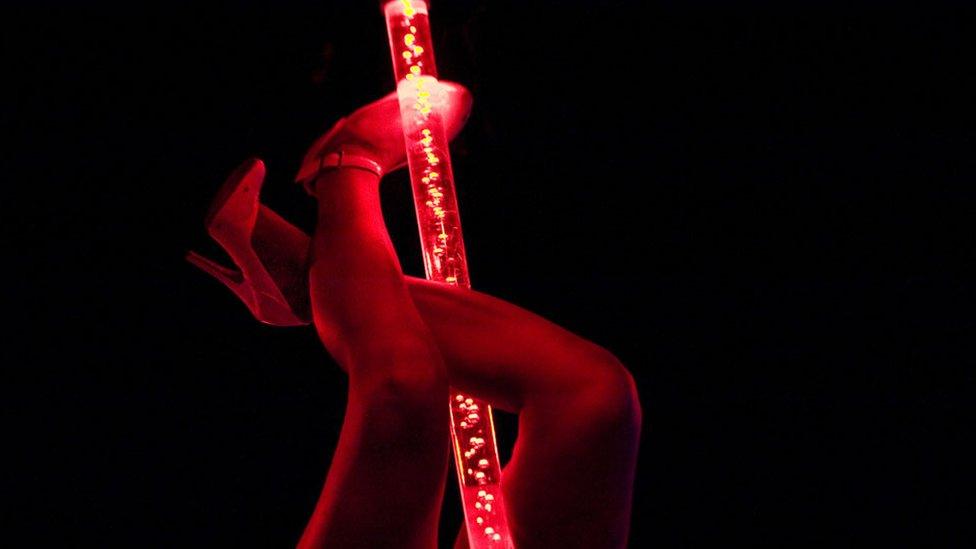
- Published11 June 2019
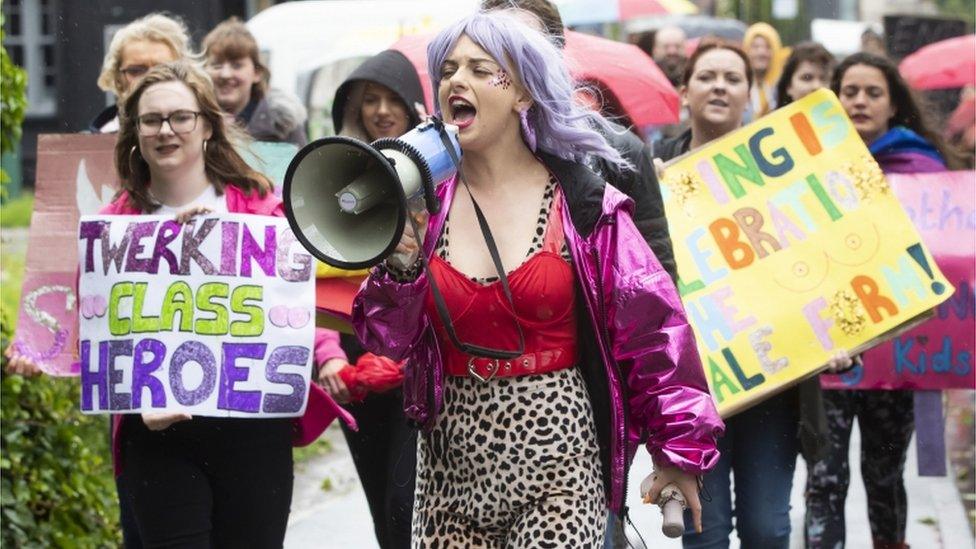
- Published21 August 2013
